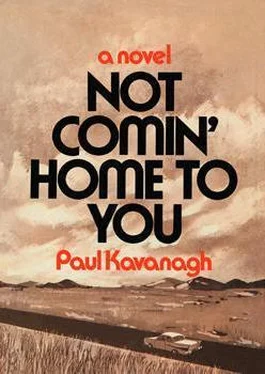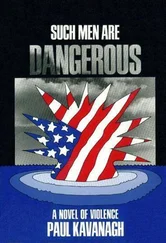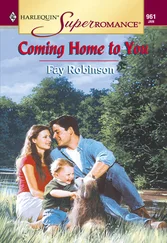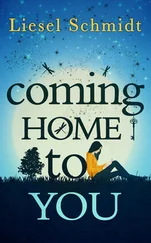Paul Kavanagh - Not Comin' Home to You
Здесь есть возможность читать онлайн «Paul Kavanagh - Not Comin' Home to You» весь текст электронной книги совершенно бесплатно (целиком полную версию без сокращений). В некоторых случаях можно слушать аудио, скачать через торрент в формате fb2 и присутствует краткое содержание. Город: New York, Год выпуска: 1974, ISBN: 1974, Издательство: G.P. Putnam's Sons, Жанр: Криминальный детектив, на английском языке. Описание произведения, (предисловие) а так же отзывы посетителей доступны на портале библиотеки ЛибКат.
- Название:Not Comin' Home to You
- Автор:
- Издательство:G.P. Putnam's Sons
- Жанр:
- Год:1974
- Город:New York
- ISBN:978-0-399-11357-4
- Рейтинг книги:3 / 5. Голосов: 1
-
Избранное:Добавить в избранное
- Отзывы:
-
Ваша оценка:
- 60
- 1
- 2
- 3
- 4
- 5
Not Comin' Home to You: краткое содержание, описание и аннотация
Предлагаем к чтению аннотацию, описание, краткое содержание или предисловие (зависит от того, что написал сам автор книги «Not Comin' Home to You»). Если вы не нашли необходимую информацию о книге — напишите в комментариях, мы постараемся отыскать её.
Not Comin' Home to You — читать онлайн бесплатно полную книгу (весь текст) целиком
Ниже представлен текст книги, разбитый по страницам. Система сохранения места последней прочитанной страницы, позволяет с удобством читать онлайн бесплатно книгу «Not Comin' Home to You», без необходимости каждый раз заново искать на чём Вы остановились. Поставьте закладку, и сможете в любой момент перейти на страницу, на которой закончили чтение.
Интервал:
Закладка:
And then what the hell would they do there? She said she spoke Spanish, and he guessed a powerful number of Mexicans must speak English, and there weren’t that many people he had a great urge to talk to anyway. Maybe it could work out. Some little Mex town stuck back in the hills where they never saw a newspaper or listened to a radio. Some out-of-the-way place the U.S. cops would never think to look in.
Meanwhile they would just keep running. There was a long road stretching out in front of them now, and the road he saw in his mind was even longer. He couldn’t see what was at the end of it, and he thought briefly that it might not much matter what was at the end of it. The important thing was moving, moving.
The three thirty news was a repeat, word for word, of the three o’clock broadcast. There were a few more details at four o’clock — information on the Deinhardts, speculation that the killer might have had a grudge against the family.
At four thirty the sky was starting to lighten. The terrain was hilly, and the road they were on now curved in and out of the hills. The Dodge wagon had lousy shock absorbers and he had to baby it on the curves, and he kept thinking nostalgically of the Toronado. It would have straightened out those curves; it would have eaten those hills for breakfast.
The news was the same again, and he alternated between being bored at the monotony of it and grateful at the miles they were covering while the police got nowhere. Then at ten minutes to five the station cut into the middle of an old Hank Williams record with a bulletin. A ballistics check had established that the same gun which killed the Deinhardt family had been used the night before in the service station holdup. Well, he had expected that.
And five minutes after that — you would think they would wait for the five o’clock news, but no, the bastards had to show what hot stuff they were — there was another bulletin. They’d found the man and woman in the tourist cabin, and the Toronado parked out back. And he had not expected that, not so soon.
“Why are we stopping? Are we home yet?” She blinked, rubbed sleep from her eyes. He didn’t answer her at first. He sat behind the wheel with his fingers tight on it. He had pulled onto the shoulder of the road and cut the ignition. Mist rose from the fields.
He couldn’t think. His mind worked quickly, but it was spinning away from him and he couldn’t keep a tight hold on it. that was the trouble with speed when you ran too long on it. You couldn’t do that, shouldn’t have to do it. If only he could have had a night’s sleep in the little tourist cabin, if only he could have fitted in that many hours before the damn cops found that credit slip and made the Toronado as the holdup car. If only that dumb sonofabitch Sturdevant had made out the slip right the first time around, so that he could have taken the one slip with him and been done with it. If only—
“Jimmie John?”
“Car’s no good,” he said shortly.
“What’s the matter with it?”
“They know about it.”
“How did they—”
He turned on her. “Look, I got no time for questions. They found the other car and they must know what we’re driving now, or they will in a couple hours. And besides this damn thing is a piece of shit to drive, and a station wagon’s no damn good because they’ll have your picture all over the place, and if we stop anywhere you’ll have to hide in the trunk, and there’s no fucking trunk in a fucking station wagon.” He caught the expression on her face and made himself relax. “I’m sorry,” he said. “Didn’t mean to snap at you. I’m all tied up in knots.”
“I’m sorry.”
He got out and walked around the front of the car. He couldn’t open the hood, and he cursed it intently for a few moments, then checked inside the car and found a hood release switch. He got the hood up.
“What’s that for?”
“We had a breakdown,” he said, “and some kind soul’s gonna stop to offer a helping hand.”
“And then what?”
“Then we trade cars.”
He got the gun, stuck it under his belt. She kept her eyes straight ahead while he did this. Then he stood in front of the car and pretended to look at the engine. For quite a while no car passed in either direction. Then a pickup truck came by heading in the same direction as they were. There were two men in the front seat. They were dark and looked Mexican but spoke with no accent. He told them thanks all the same but he had already called the triple-A and there was a service truck on the way to them. They wished him luck and drove off.
“A station wagon is bad enough,” he said. “Last thing we need is a goddamned truck.”
Two cars passed without even slackening speed. Then a northbound car pulled up on the other side of the road and the driver got out. He wore a poplin windbreaker and faded Levi’s and favored one leg slightly as he crossed the road toward them. His car was a Dodge Coronet. The outside was dirty with road dust, but the car looked to be fairly new.
The driver was maybe fifty-five. He had a full head of gray hair. When he smiled there were pairs of deep curved lines in his cheeks. He smiled now and said, “Reckon you got trouble.”
Jimmie John said, “Not half the trouble you got.”
Dear Betty,
I hope you don’t mind me calling you Betty. But I feel I know you, even though we have never met and you do not know me.
I wrote to you once before. It was about six weeks ago. I don’t know if the letter reached you or not because I did not hear from you. I know you are very busy and have no time to write but I was just wondering if you ever got my letter.
Anyway, my name is Karen Braden and I live in Wells Creek. It’s a small town in the State of Washington. The nearest large city is Spokane. I am 14 and in the tenth grade.
I suppose it’s silly to write and waste your time with this letter. It’s just that I think about everything you have gone through and feel close to you. I think about you and Jimmie John all the time.
Could I ask you a couple of questions? I know you probably won’t have time to answer this letter, but I will ask them anyhow. I know Jimmie John’s favorite record was “Not Comin’ Home to You,” and his favorite country artist was Waylon Jennings. Could you tell me any other music he cared a lot for? Anything about his other likes and dislikes? The way he felt about things and what the two of you used to talk about? Anything you could tell me I would love to hear.
If there is anything I could do for you just let me know. Anything you need or anything like that. I guess that’s about it; I can’t think of anything more to write.
Very sincerely yours,
KAREN BRADENTwelve
The Coronet’s radio wouldn’t bring in Omaha. She found a Denver station but he couldn’t stand the music they played so she worked the dial until she got something he liked. Then she sat back and tried to close her eyes but they wouldn’t stay shut because every time she closed them she saw things she didn’t want to see.
“Pretty country,” he said.
She looked out the window but couldn’t make herself pay attention to the scenery. There were mountains way off to the right. She had never seen mountains before, and she was seeing them now, and she couldn’t keep her mind on what she was looking at.
The worst part was when he drove the car over the dead man. That had been somehow worse than the shooting. She had not watched the shooting, but she had been unable to blot out the sound of it, two shots close together and then a third shot, and even with her eyes closed she could see what was happening in her mind. Then she looked, even though she did not want to look, and saw the man lying dead in the middle of the road and Jimmie John grabbing him by the ankles and dragging him onto the gravel shoulder.
Читать дальшеИнтервал:
Закладка:
Похожие книги на «Not Comin' Home to You»
Представляем Вашему вниманию похожие книги на «Not Comin' Home to You» списком для выбора. Мы отобрали схожую по названию и смыслу литературу в надежде предоставить читателям больше вариантов отыскать новые, интересные, ещё непрочитанные произведения.
Обсуждение, отзывы о книге «Not Comin' Home to You» и просто собственные мнения читателей. Оставьте ваши комментарии, напишите, что Вы думаете о произведении, его смысле или главных героях. Укажите что конкретно понравилось, а что нет, и почему Вы так считаете.












